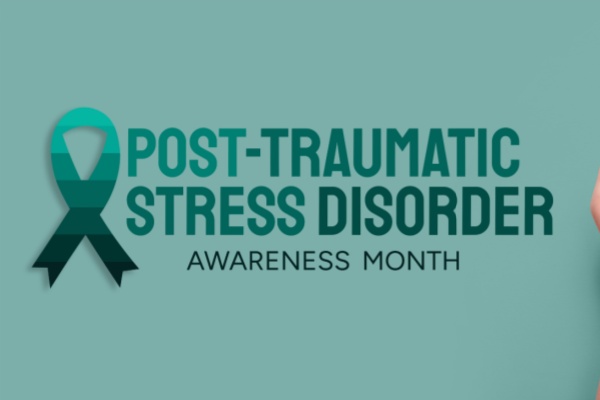June is National Post-Traumatic Stress Disorder (PTSD) Awareness Month, and is intended to raise public awareness about issues related to PTSD, reduce the stigma associated with PTSD, and help ensure that those suffering from the invisible wounds of war receive proper treatment.
What is PTSD?
There are currently about 12 million people in the United States living with Post Traumatic Stress Disorder (PTSD).
PTSD is a mental health problem that some people develop after experiencing or witnessing a life-threatening event, like combat, a natural disaster, a car accident, or sexual assault. Anyone can develop PTSD at any age. There are factors that can increase the chance someone will develop PTSD, and these are often not under that person’s control.
PTSD may result in sleep problems, irritability, anger, recurrent dreams about the trauma, intense reactions to reminders of the trauma, disturbances in relationships, and isolation. Some people may recover a few months after the event, but for others it may take years. For some, PTSD may begin long after the events occur.
What are the Signs and Symptoms of PTSD?
PTSD symptoms usually start soon after the traumatic event, but they may not appear until months or years later. They also may come and go over many years. If the symptoms last longer than four weeks, cause you great distress, or interfere with your work or home life, you might have PTSD.
There are 4 types of PTSD symptoms, but they may not be exactly the same for everyone.
- Reliving, or Re-experiencing the Event.
- Avoiding things that remind you of the Event.
- Having more Negative Thoughts & Feelings than you did before the Event.
- Feeling on Edge or Keyed Up (also called Hyperarousal).
Each person experiences symptoms in their own way, and someone experiencing PTSD could have any one or a combination of these.
Treatments are Available
PTSD is very common, and treatment is available. Treatment includes different types of trauma-focused psychotherapy as well as medications to manage symptoms. According to the National Center for PTSD, even though treatments have been proven effective in healing the disorder, most people who have PTSD don’t get the help they need.
During PTSD Awareness Month – and every month – everyone with PTSD—whether they are Veterans or civilian survivors of sexual assault, serious accidents, natural disasters, or other traumatic events—needs to know that treatments really do work and can lead to a better quality of life.
—
Photo Credit: Pixel-Shot / Shutterstock.com
